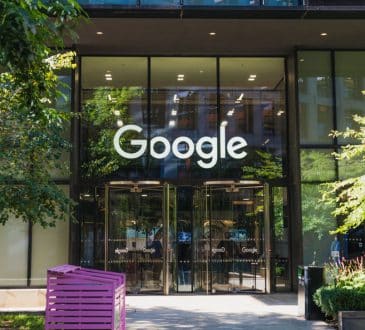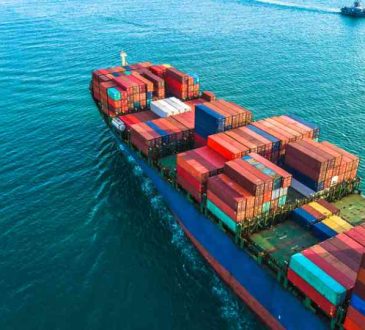Michelin’s Katelyn Berry on the Future of Electric Vehicles

With the coming of a new green era, fossil fuels are poised to go the dinosaur’s way. Soon enough, the combustion automobile engine as we know it will be a thing of the past. Even as hydrogen-powered cars loom on the horizon, electric vehicles (EVs) are currently making inroads into the auto industry that have already wrought a sea change in the marketplace. No matter which fuel eventually powers the evolving fleet of cars, trucks, and buses of the future, they’ll all still be running on tires for a good long while. According to Katelyn Berry, vice president and general manager for Michelin’s North American business-to-consumer portfolio, the future for this emerging breed of transportation is already very much in the works.
“Consumers are hearing more and more about the electrification of the auto industry today, but it’s going to be quite explosive as we go forward over the next 5 to 10 years,” Katelyn Berry says. “Michelin is leading the category in bringing EV tire solutions to original equipment manufacturers (OEMs). 8 out of 10 EV manufacturers have chosen Michelin tires as original equipment on their electric vehicles because of our extensive experience and expertise in this space. For nearly three decades, Michelin has been recognized by industry experts and consumers alike for our achievements in customer satisfaction, performance, durability, technology and innovation. It’s this recognition that makes Michelin the most awarded tire brand in the US.”
The Electric Vehicle Revolution
In California, the largest auto market in the United States, regulations are already in place to phase out future sales of gas-powered modes of transportation. In New York state, proposed legislation to follow suit is currently on the table. According to the Institute for Energy Research (IER), “[California state] regulators project that by 2030, there will be 2.9 million fewer new gas-powered vehicles sold, growing to 9.5 million fewer conventional vehicles by 2035. About 183,000 of the estimated 2 million vehicles sold in California in 2035 are projected to be a plug-in hybrid.”
“The new policy is expected to accelerate the global transition toward electric vehicles because… over a dozen other states typically follow California’s lead when setting their auto emissions standards. If those states follow California’s lead, the restrictions (which do not impact used cars) will apply to about a third of the U.S. auto market.”
“Electrification is arguably the biggest revolution the auto industry has seen since its inception. Michelin invented the first green tire back in 1992, optimizing rolling resistance and helping vehicles reduce CO2 emissions through improved fuel efficiency.
Today, our entire tire portfolio lineup is what we call EV-ready so we are more than prepared for this shift in the industry” notes Berry.
The Other Evolutionary Differences Between EVs and Cars that Run on Gas
While fuel is the most obvious thing that sets EVs apart from their combustion-engine counterparts, in tandem with the transition to non-carbon-based fuel, another evolution is taking place that’s having a huge impact on the global automobile landscape — the changeover from traditional sedans, once the mainstay of the marketplace, to recreational vehicles — the majority of which, Katelyn Berry reveals, will soon be electric.
“1 in 5 new cars will be electric in 2027 and by 2030 that number triples to about 65%,” Berry reports. “The entire ‘car park,’ as we call it, is truly evolving to this electric format. Additionally, it’s evolving more heavily to SUV/Pickup Truck formats – 80% of new cars will be that type of format by 2030. That’s why we’re so focused on ensuring our tires are designed and engineered to deliver the best performance on these vehicles.”
What makes this development so crucial in terms of fuel efficiency and, most importantly, safety is the unseen factors — from technological advances to manufacturing specifications — that go into engineering these trending cutting-edge vehicles.
“These cars are not just different because they are electric powered, they also come with more weight and more torque than what you see with an internal combustion engine. This wears tires more quickly. Also, without the noise of an engine, the cabin is quieter making road noise more obvious. Of course, there’s also consumer interest in range and how the tires can impact that as well. All of these variables impact the tire and their designs.” says Berry.
“Michelin’s focus on innovation and technology helps address these needs and I can give a few examples. In Europe, the Michelin ePrimacy is a rolling resistance leader with 27% reduction compared to category average which provide a 7% longer range for an EV. Beyond range, our innovation also delivers on performance, wear, and all season – the Michelin Pilot Sport EV was born from Formula E track-to-street technology and it’s the first Michelin tire engineered to meet specific handling and range requirements for electric sports cars. Many of which were showcased at the auto show in Detroit this year. It delivers low road noise, low rolling resistance, and extends range by 37 miles per charge. On the wear side, we launched Defender 2 in North America this past year and designed it to handle the extra weight and torque of small SUVs, minivans and electric vehicles”
“I haven’t mentioned safety in my examples, but that is always priority number-one for Michelin in every tire line that we’re creating,” says Katelyn Berry adamantly. “You shouldn’t be in the auto or tire industries if safety isn’t your business.”
Michelin’s current focus balances both partnering with OEMs to design OE tires that will bring out the best performance in their vehicles and ensuring a wide variety of replacement tires are available to consumers. Katelyn Berry asserts that the Michelin market portfolio is EV-ready for vehicles already on the road and for those that will be introduced in the days ahead. “Whether the consumer prioritizes range — how far can I get with my vehicle using these tires? — or if they’re focused on performance, wear, or all-season, we have a complete portfolio that you can buy and put on your car today.”
Michelin’s Forward-Thinking Strategy Sets Them Apart from Competitors
Having been in the tire business for more than 100 years, Michelin is known for its pioneering culture . “It’s Michelin’s history and culture focused on innovation that keeps us at the forefront of the electric vehicle revolution,” Katelyn Berry says. ” We believe in more sustainable mobility and we are determined to help build the car of the future leveraging the company’s unique expertise with tire, around tires, and beyond tires.”
“We know that true innovation and change in sustainable mobility won’t come from Michelin alone, that’s why we created the Movin’On ecosystem in 2017. It is intended to help accelerate solutions for mobility challenges thru co-innovation with other stakeholders and external partners.” Berry says. “There’s an annual sustainable mobility Summit as part of this ecosystem and the Movin’On Challenge Design has become widely recognized as one of the world’s premier global mobility design competitions. These engagements and design challenges help support our continued commitment to becoming a global leader in sustainability.”
Michelin and the Future of Next-Generation Vehicles
By the time today’s EVs become classics, drivers might find themselves sharing the road with hydrogen-powered rides. As transportation continues to evolve, the world may one day be populated by self-driving cars controlled totally via camera and artificial intelligence.
“Hydrogen is an exciting trend to watch…Michelin believes this technology will be in market extensively by 2045,” says Katelyn Berry, ” and we’re pushing for it – hydrogen not only reduces greenhouse gas emissions, but compared to battery electric vehicles it yields 2-3 times greater range, 7.5 times faster charging, and it’s 2.5 times cheaper than a fast-charging station for batteries.”
Michelin’s joint venture Symbio was created to help accelerate the future of sustainability with hydrogen. “Michelin is convinced that hydrogen mobility will be one of the essential components of clean mobility, alongside electric batteries thanks to the benefits it provides.” says Berry.
A Bit About Katelyn Berry
Katelyn Berry, VP/GM for Michelin’s business-to-consumer portfolio, serves on the company’s North American Executive Leadership team. Berry has garnered a well-earned reputation for delivering financial value creation for a variety of organizations throughout her career by leveraging her broad market and consumer knowledge, inspiring vision, and employee empowerment.
Berry, who received a B.S. in Marketing and a subsequent M.B.A. from DePaul University in Chicago, Illinois, says she was attracted to the college due to its commitment to diversity among the student and faculty population, as well as its innovative approach to higher learning. With a passionate interest in diversity, equity, and inclusion (DEI), Berry currently serves as executive sponsor for Michelin’s LGBTQ+A Business Resource Group.
Have you read?
Best Business Schools In The World For 2022.
Best Fashion Schools In The World For 2022.
Best Hospitality And Hotel Management Schools In The World For 2022.
Best Medical Schools In The World For 2022.
The World’s Best Universities For Doctor of Business Administration (DBA), 2022.
Add CEOWORLD magazine to your Google News feed.
Follow CEOWORLD magazine headlines on: Google News, LinkedIn, Twitter, and Facebook.
This report/news/ranking/statistics has been prepared only for general guidance on matters of interest and does not constitute professional advice. You should not act upon the information contained in this publication without obtaining specific professional advice. No representation or warranty (express or implied) is given as to the accuracy or completeness of the information contained in this publication, and, to the extent permitted by law, CEOWORLD magazine does not accept or assume any liability, responsibility or duty of care for any consequences of you or anyone else acting, or refraining to act, in reliance on the information contained in this publication or for any decision based on it.
Copyright 2024 The CEOWORLD magazine. All rights reserved. This material (and any extract from it) must not be copied, redistributed or placed on any website, without CEOWORLD magazine' prior written consent. For media queries, please contact: info@ceoworld.biz
SUBSCRIBE NEWSLETTER








